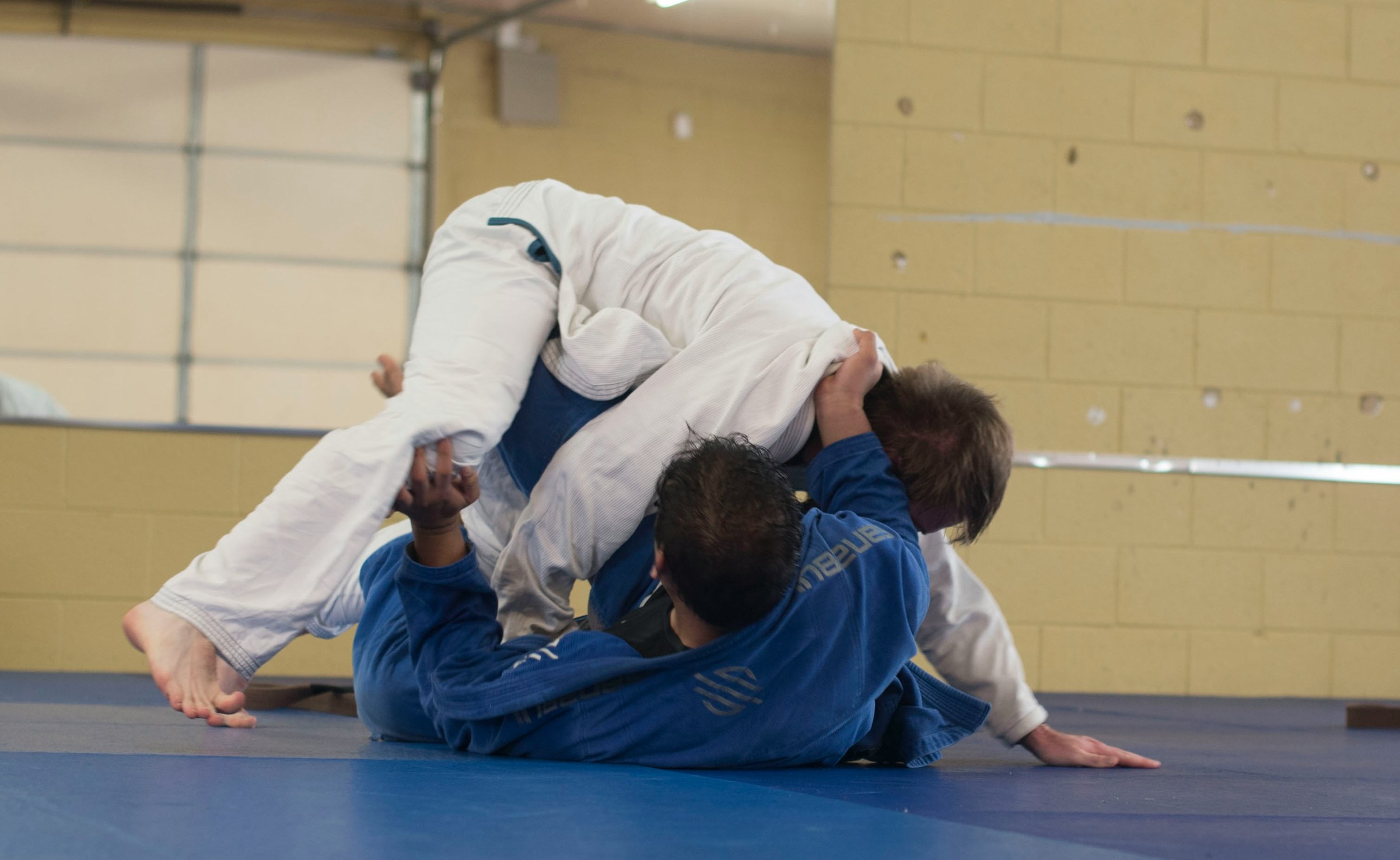Understanding Cognitive Training in Sports
Cognitive Training in sports refers to the systematic enhancement of cognitive abilities crucial for improving athletic performance. It plays a vital role in Sports Psychology by focusing on mental processes, alongside physical skills. Athletes, particularly in dynamic sports like judo, benefit immensely from enhanced cognitive functions which include decision-making, attention, and pattern recognition.
Judo performance is highly dependent on these cognitive functions. For judo athletes, quick decision-making is crucial due to the fast-paced nature of the sport and the need to anticipate opponents’ moves. Similarly, sustaining focus and attention allows athletes to remain strategically aware and agile, reacting swiftly to changing situations in the match. Additionally, cognitive training helps in recognizing patterns in opponents’ behaviors, giving athletes a competitive edge.
Topic to read : Creating the Perfect Travel Itinerary for UK Fighters Competing Abroad: An Essential Guide
Evidence continues to emerge supporting the benefits of cognitive training for athletes. Research has shown that athletes who engage in cognitive exercises achieve better performance metrics across various sports disciplines. This enhanced cognitive capacity allows athletes to perform complex tasks more efficiently, translating to improved judo performance. In essence, integrating cognitive training into an athlete’s routine is not only insightful but essential for elevating competitive capabilities in judo and other sports.
Tailoring Cognitive Training for Judo Athletes
Implementing Judo Cognitive Strategies effectively can significantly enhance an athlete’s performance. Recognizing the critical cognitive skills unique to judo is the first step. In judo, athletes must master split-second decision-making, maintain heightened focus, and develop keen anticipation to predict opponents’ moves. These skills allow for swift reactions and adaptability during matches.
In parallel : Mastering Victory: The Strategic Use of Periodization by UK Boxing Coaches for Optimal Training Cycles
Key Cognitive Skills for Judo
The key cognitive skills necessary for judo include situational awareness, strategizing under pressure, and internalising complex techniques quickly. These skills help athletes to outmaneuver their opponents, maintaining the upper hand in fast-paced environments. The emphasis on these skills highlights the essential role of the mind in successful judo performance.
Specific Techniques for Judo Athletes
Athletes can engage in specialised drills like reaction time tests and situational simulation to cultivate these skills. Decision-making exercises, such as sparring with varied strategies, can also refine these abilities. Incorporating mental visualization helps athletes rehearse movements and strategies mentally, providing a comprehensive preparatory approach.
Cognitive Training Modalities Used in Judo
Innovative cognitive training techniques like memory games, mindfulness practices, and attention exercises form the backbone of tailored judo training methods. Structured visualization exercises can simulate combat scenarios, allowing judo athletes to mentally prepare for different matches. This preparation can enhance their performance significantly, proving the effectiveness of dedicated cognitive development in sports.
Potential Benefits of Cognitive Training on Physical Performance
Improvement in Decision-Making Skills
Cognitive training has been shown to significantly enhance decision-making skills in athletes, particularly under pressure. In high-stakes sports like judo, where quick and accurate decisions are crucial, this can be the difference between a win and a loss. Cognitive exercises fine-tune an athlete’s ability to assess situations thoroughly and choose the most effective techniques rapidly.
Enhanced Focus and Concentration
A pivotal aspect of cognitive training is its ability to bolster focus and concentration. During intensive matches, judo athletes must maintain unwavering attention to outmaneuver opponents. The incorporation of mental exercises specifically aimed at improving focus can help athletes block out distractions and zero in on their performance.
Increased Resilience and Mental Toughness
Cognitive training also contributes to heightened resilience and mental toughness. These are essential qualities for athletes who frequently encounter adversities and need tenacity to consistently perform at their best. Through systematic cognitive exercises, athletes build mental fortitude, allowing them to recover from setbacks quicker and maintain a positive competitive attitude. This resilience translates not only to better in-game performance but also to overall athlete development.
Daily Cognitive Training Integration
Incorporating cognitive exercises into a daily training schedule is key for balanced athlete development. A well-structured routine should allocate time for both cognitive and physical training, ensuring athletes don’t neglect their mental development. Ideally, cognitive exercises should be integrated at the start or near the end of a session, allowing athletes to optimize concentration and focus.
Sample daily training schedules might include 15-20 minutes dedicated to cognitive training, utilising exercises like memory games, visualization, or strategic decision-making tasks. This time complements physical training without overwhelming the athlete’s schedule. Over time, the gradual introduction of more complex cognitive tasks can help enhance specific skills needed in judo.
Consistency remains crucial, as regular practice reinforces mental agility and overall athletic performance. Athletes and coaches should aim to maintain a balanced approach to cognitive and physical exercises, ensuring neither aspect is neglected. Simple tips like setting routine reminders, gamifying exercises, and scheduling routine reviews can aid in maintaining consistency. Adjust practices based on athletes’ progress and feedback to foster a sustainable and effective cognitive training routine, ultimately boosting judo performance significantly.
Monitoring and Adjusting Cognitive Training
In the realm of training assessment, evaluating cognitive performance in athletes is crucial for optimizing their skills. Using tools such as cognitive performance tests and simulation exercises, athletes can be assessed on metrics like decision-making and memory retention. This monitoring provides vital data for customizing training approaches.
Tools for Monitoring Cognitive Performance
Various tools are available for performance monitoring, ranging from digital cognitive tests to wearable tech sensors tracking real-time reactions. These technologies offer insights into how athletes’ cognitive functions are honed during training, enabling a scientific approach to improvements.
Adjusting Training Based on Progress
Feedback mechanisms play a pivotal role in refining training methods. Coaches and athletes can use insight from performance data to adjust training regimens. Tailoring exercises based on progress ensures that cognitive training remains relevant and challenging, fostering continuous athlete development.
Importance of Feedback Loops
Establishing robust feedback loops is essential. Coaches should engage athletes in reflective discussions about their cognitive performance, which not only enhances self-awareness but also empowers athletes to take ownership of their growth. Consistent feedback helps iterate training methods, ensuring sustained performance enhancement.
Resources and Tools for Cognitive Training
Exploring comprehensive training resources can significantly bolster cognitive skills crucial for athletic advancement. To start, there’s a wealth of recommended books and articles dedicated to enhancing cognitive functions in sports. These resources delve into methodologies for integrating cognitive exercises into athlete routines, covering topics such as visualization, pattern recognition, and situational awareness.
An array of innovative cognitive tools is available, ranging from mobile apps to interactive platforms designed to engage athletes. These tools focus on honing skills like memory retention, decision-making, and attention, making them adaptable to various sports disciplines, including judo. Utilizing such technology can provide immediate feedback and track progress, helping in tailoring individual training plans.
Considering visual aids also adds depth to a cognitive training regimen. Athletes can benefit from diagrams, video analyses, and simulation software. These resources offer valuable perspective, allowing athletes to replay scenarios and optimize tactical approaches. Moreover, participating in workshops and seminars can provide hands-on experience and professional insights. By leveraging these tools and resources, athletes can establish a robust cognitive training framework, setting the stage for enhanced performance and competitive edge.
Real-Life Applications and Case Studies
Cognitive training success stories highlight its transformative impact on judo performance. Training programs that integrate cognitive exercises have been documented to enhance an athlete’s ability to perform under pressure, evidenced by several compelling case studies. A notable example is a judo club that introduced structured mental exercises, observing significant improvements in decision-making speed and accuracy.
Athletes participating in these programs often report enhanced capability to anticipate opponents’ moves, resulting in a tangible strategic advantage. Their testimonials frequently underline the enhanced reflexes and focus acquired through deliberate cognitive drills.
A comparative analysis conducted at this club demonstrated impressive performance metrics pre- and post-cognitive training. As documented, reaction times were reduced by up to 30%, and match victories increased notably. This clear correlation between cognitive engagement and skill execution underscores the importance of mental preparation in competitive sports like judo.
Meanwhile, testimonials from each level, novice to elite, consistently emphasize cognitive training’s role in fortifying both physical and mental resilience. These first-hand accounts provide invaluable insights for trainers and athletes alike, advocating the widespread adoption of cognitive techniques. They offer inspiration and practical strategies for those seeking performance enhancement through mental acuity.

